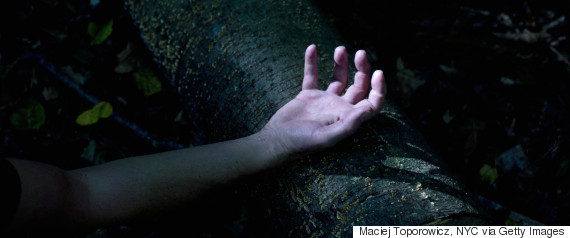
"But what is it we are afraid of?" wrote Virginia Woolf in 1918. "We are not afraid of ruins, or moonlight, or ghosts." Woolf was charting a sea-change in the nature of the supernatural tale, but she might as well have been asking future readers "Who will you be, and what will frighten you?"
In Woolf's time, the gothic effects of Mrs. Radcliffe no longer frightened readers. For Woolf it was the close-to-home possession of two young children in Henry James' The Turn of the Screw. Do the phantoms exist only in the mind of the untested twenty-year-old charged with protecting them? We never know. But the governess experiences something far more frightening than a ghost: Woolf calls it "the sudden extension of her own field of perception."
The sudden extension of her own field of perception.
Strange. Terrifying. Something we are likely to experience in our world too. A sudden glimpse of a terrain beyond our perceived limits, and nothing is ever the same again. Isn't this exactly what happens when a reader encounters a truly disquieting short story? You feel as if a trap-door has opened and you've fallen through. Everyone and everything -- out there in the world -- looks slightly different. The line between private and public starts to blur.
Think, say, of a Shirley Jackson story in which a Manhattan subway-ride triggers a feeling of being followed -- all the way home. Or one by China Miéville, in which an apartment building's foundations begin to whisper a suppressed truth -- to just one man. Or a Joyce Carol Oates story in which a suburban mcmansion has a sort of body double in the next cul de sac. A Robert Aickman train station exists above another, old building waiting to reassert itself on a winter's night. Yoko Ogawa's fictional back-garden produces carrots shaped like human hands, and in a Karen Russell story, a young boy goes searching in sea-caves for his other-worldly sister. We might go all the way back to Poe's library-dweller, obsessed with books, and also with his beautiful cousin's very white teeth, oh, her teeth!
But these scenarios and images are only disturbing because of the depth of the writer's obsession, and belief in them. And if these stories -- each of them deeply unsettling -- have something in common, it lies deeper in the marrow of the story-maker's art. In each of them, the writer settles us cozily in a familiar world, with a narration we think we can trust, then very slowly begins to redraw the map, undermine the foundations.
I've been on a hunt, of late, for just such stories, and I have come to no scientific conclusions. But if the exercise of putting together an anthology called The Uncanny Reader has taught me anything at all, it's just this: every story capable of unsettling us must have something deviously and brilliantly wrong with it. And I mean wrong in the best sense. The narration must leave something out, or put too much in -- something that awakens us as we read, makes us pay attention in a new way. And this can only happen if the writer is herself in hot pursuit of something beyond her ken. By pursuing a mystery, she opens a door she shouldn't have opened. She forgets -- or appears to have forgotten -- to close it behind her.
After that, the onus is on the reader. We must be willing to linger in the gap, the disturbance. Depending on the story you might have the urge to wash your hands -- and not just metaphorically.
Freud understood this when, at the end of his 1919 essay called "The Uncanny," he revealed his envy of the writer of imaginative literature. "The uncanny that we find in fiction," he writes, "is above all much richer than what we know from experience; it embraces the whole of this and something else besides, something that is wanting in real life."
Welcome to the province of the uncanny-in-fiction. A place to explore the foreignness not "out there" but in ourselves, and in the histories we work so hard to repress. It might be just the thing for these klieg-light times of ours.
Marjorie Sandor is the editor of The Uncanny Reader.